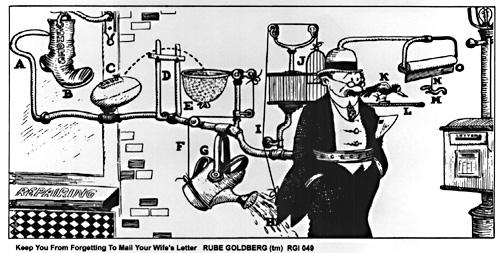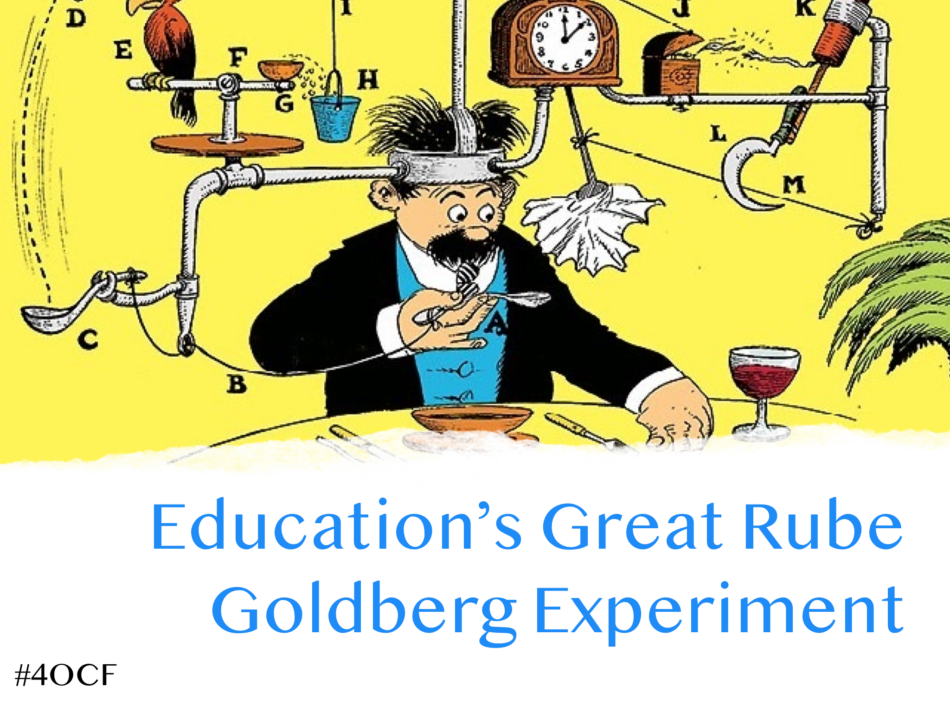What we’re doing in education right now is akin to operating a Rube Goldberg machine.
If you are not familiar, Rube Goldberg used to design elaborate, complex plans to accomplish really simple tasks. For example, mailing a letter:

Education is currently operating the Greatest Rube Goldberg Machine we have ever seen.
Start with a little bit of remote learning.
Add in some in person hybrid instruction.
Next, incorporate a live video stream of the lesson.
Make sure all in person students adhere to social distancing norms.
Provide a weekly pickup and drop off of materials for fully remote students.
Temperature checks, hand washing stations, plexiglass dividers. All added in to increase complexity.
Ensure the remote students have additional activities to complete while the in person students wash their hands before lunch.
Scrambling to put a substitute in place for in person kids while the classroom teacher works remotely.
We continue to add in layer upon layer, and increase the degree of difficulty for our Rube Goldberg machine.
All of these intricacies must build upon each other, working independently on their own, but still functioning together, and for the end result, we might see a small amount of learning for students.
Oh, and I forgot to mention that educators sometimes don’t have the resources to build the machine completely, but somehow, we’ve got to make it happen.
The amount of work, effort, time, and thought going into instructional design right now is incredible. All of it to provide miniscule learning gains with students.
The standard belief is that over time, continuous small gains add up to a large gain.
We are hoping that this great Rube Goldberg experiment will work. We are hoping that kids will come out of it and be OK. We are hoping the same for educators.
And just like with any Rube Goldberg machine, we keep tinkering and adding, with the expectation that the end result justifies all of the complexities of the process to get there.
Let’s just hope that, in the end, our machine works.
Rich


